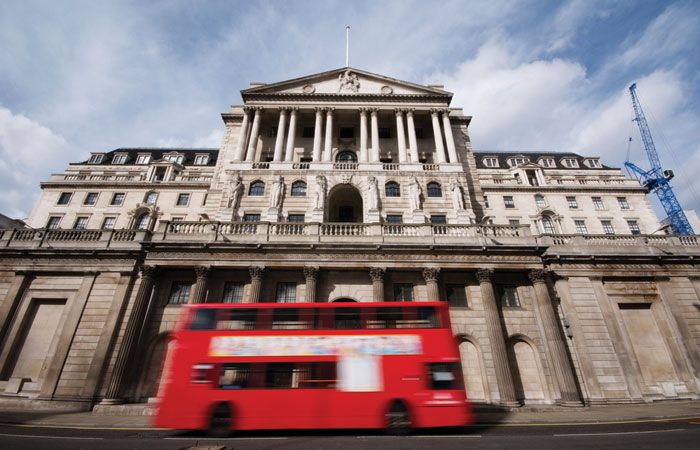
Bank of England chief economist Huw Pill warns there are “greater risks” from cutting the base rate too early rather than too late.
Interest rates are now at a 16-year high of 5.25% in an effort to reduce inflation, which fell to 3.2% in March, compared to 11.1% in October 2022. The Bank’s inflation target is 2%.
But the Monetary Policy Committee member points out that this fall is due to the current “restrictive stance of monetary policy”.
Pill, who voted to hold rates at the committee’s February and March meetings, says: “The MPC needs to ensure sufficient restrictiveness to achieve the 2% inflation target on a lasting and sustainable basis.”
He adds: “There are greater risks associated with easing too early should inflation persist rather than easing too late should inflation abate.”
Rate cuts are “some way off”, the policymaker points out in a speech at the London Campus of the University of Chicago Booth School of Business.
Markets are still betting on two base rate cuts this year, but the odds of an August cut slipped after his comments. The first cut is now only fully priced in for September.
Pill says the MPC will monitor three key measures to gauge as it considers when to cut interest rates — services price inflation, pay growth, and the tightness of the UK labour market.
But he adds their conservations will be complicated by other indicators such as mortgage rates.
The economist says: “Over recent months we have seen the rate on a new fixed-year fixed rate mortgage decline from the highs seen last autumn (and previously in the context of market dislocations stemming from the latent defects insurance episode in October 2022 – [following the mini-Budget the month before]).
“But for those households refinancing their mortgages at present, the rate at which they are now able to fix their borrowing costs is likely to be significantly higher than what they have been paying for the past two or five years since their previous refinancing.
“And this has all taken place in a period where Bank rate has remained unchanged at 5.25% since last August.
Pill says: “Have interest rates fallen? Have they risen? Or have they stayed the same? Based on the previous paragraph, one could make a case to answer ‘yes’ to all three questions simultaneously.
“At a minimum, this suggests that assessing monetary policy and its transmission simply through the level of Bank rate is simplistic and potentially misleading.”



